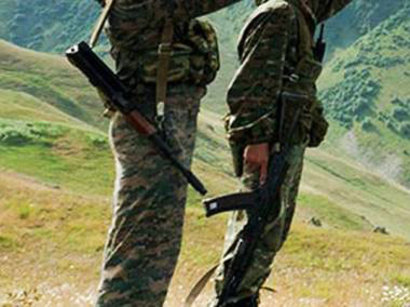
Can Ashgabat Reconcile Kabul With the Taliban?
Publication: Eurasia Daily Monitor Volume: 11 Issue: 69
By:

The government of Turkmenistan has begun mobilizing the country’s army reservists and has sent them to the border with Afghanistan. At least a few dozen reservists were deployed to the town of Serhetabad, (formerly known as Kushka) on the Turkmenistan-Afghanistan border. The border situation worsened dramatically when, on February 27, Taliban forces killed three Turkmenistani border patrol guards. The incident occurred in the Moqor district in Afghanistan’s Badghis province. Provincial government spokesman Mirwais Mirzakwal confirmed the deadly confrontation had occurred as Turkmenistan’s border guards were patrolling the area between the two countries. According to Mirzakwal, the attack was carried out by Taliban commanders Mullah Abdullah and Mullah Ahmad, together with their fighters. Turkmenistani consulate officials in western Afghanistan have also confirmed the report (Fergananews.com, March 18).
After this incident, Ashgabat reached an agreement with ethnic Turkmen living in Afghanistan, giving them the responsibility of protecting the border from the Afghan side and preventing the Taliban from coming near Turkmenistan’s territory. Now, 120 ethnic Turkmen with Kalashnikov submachine guns and grenade launchers patrol the local section of the border from Afghan territory. Leading this group of Turkmen is an experienced field commander referred to in the media only as Gurbandi, who has reportedly fought against the Taliban for many years (Fergananews.com, March 12).
The tensions currently occurring along Afghanistan’s border with Turkmenistan are a relatively new phenomenon. Three Central Asia countries—Tajikistan, Uzbekistan and Turkmenistan—share a border with Afghanistan. And in the past, most conflict and violence had erupted along the border with Tajikistan or sometimes near the territory of Uzbekistan—but never before at the border with Turkmenistan.
Furthermore, during Afghanistan’s rule by the Taliban, Turkmenistan—unlike the other Central Asia republics—had close (although unofficial) relations with Kabul. For example, during the Talban era, Turkmenistan’s media outlets were instructed by the authorities not to portray the government in Afghanistan in a negative light (Rosbalt, March 28). Illustratively, former foreign minister of Afghanistan Boris Shaikhmuradov made several trips to Afghanistan while the Taliban was in power to negotiate the proposed Turkmenistan-Afghanistan-Pakistan-India (TAPI) gas pipeline. Taliban officials also visited Turkmenistan on several occasions (Fergananews.com, February 18).
The history of that relationship even encompassed security cooperation. In the 1990s, ethnic Turkmen from Afghanistan who were fighting against the Taliban crossed the border to escape Taliban atrocities. They were subsequently forcibly returned into the hands of the Taliban by Turkmenistan’s authorities. Once back inside Afghanistan, many of them were killed, including the brother of the Afghan ethnic-Turkmen religious leader Abdul Kerim Makhdum (Fergananews.com, February 18; Radio Liberty, May 27, 2011).
But it seems that today Turkmenistan’s government has developed serious concerns about its worsening relations with the Taliban, and Ashgabat is attempting to resolve the problem in an unusual manner. On March 18, the president of Turkmenistan, Gurbanguly Berdimuhamedov, met in Ashgabat with Salahuddin Rabbani, the chairman of the High Peace Council of the Islamic Republic of Afghanistan—a body appointed by Afghan President Hamid Karzai to negotiate with elements of the Taliban. The officials from Turkmenistan and Afghanistan discussed the situation in the region and the developmental priorities of bilateral cooperation in various fields, Turkmenistan’s government reported. “Topical issues of bilateral relations were discussed during the talks. The parties confirmed a mutual commitment of the two countries for further intensification of bilateral dialogue, discussed the situation in the region and the developmental priorities of Turkmen-Afghan cooperation in various fields,” a statement by Turkmenistan’s government read (Fergananews.com, March 26).
Yet, according to Habibula Faizi, a member of the Afghan High Peace Council, one of main questions discussed at the meeting was the possibility of Ashgabat acting as a mediator in negations between Kabul and Taliban. Faizi further believes that it will be useful for the negotiations between Kabul and the Taliban to be held in Turkmenistan’s capital. He has stated that the government of Turkmenistan has, indeed, agreed to act as a moderator between the two warring Afghan sides, and it is even likely that the Taliban will establish a consulate in Ashgabat in the near future. Faizi asserts that Kabul is not so concerned with the establishment of this Taliban consulate if it is a positive step on the road toward a more peaceful future for his country (Fergananews.com, March 26).
Apparently, Ashgabat hopes that by playing the role of mediator, it can secure some protection for Turkmenistan from further direct involvement in the Afghan conflict, especially if it begins to spill over the border to surrounding states. Such fears are clearly genuine and explain why, perhaps as a secondary precaution, Ashgabat has simultaneously taken measures to increase its border protection capabilities (see above and EDM, February 26).




